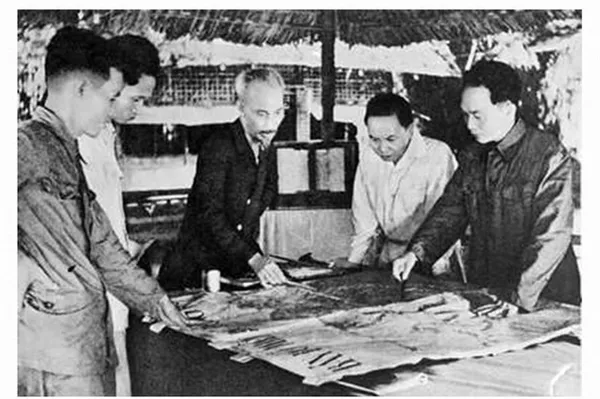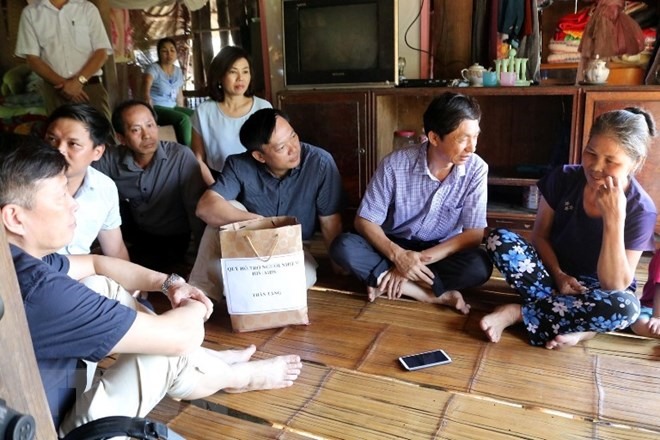.jpg) Society
Society

The Ministry of Health has asked the northern province of Phú Thọ to conduct HIV/AIDS tests free of charge for local people in Kim Thượng Commune and those living in surrounding areas.
 |
| A delegation from the health ministry visits residents in Kim Thượng Commune to inspect HIV/AIDS situation in the area. — VNA/VNS Photo Trung Kiên |
PHÚ THỌ — The Ministry of Health has asked the northern province of Phú Thọ to conduct HIV/AIDS tests free of charge for local people in Kim Thượng Commune and those living in surrounding areas.
The move comes after an outbreak of HIV in Kim Thượng Commune, where 42 residents, including a 18-month-old baby girl, were found to be infected last month.
These newly-recorded cases were among 500 residents were tested after two people died of HIV/AIDS disease and four newly-infected cases were reported between February and June.
A private health clinic owner, which has been found to operate without permission, was suspected to have shared the same dirty needle to multiple patients, causing the medical disaster. The man denied the allegation.
PhD Nguyễn Hoàng Long, director of the Ministry of Health’s Department of HIV/AIDS Prevention and Control, said the number of infected people at Kim Thượng Commune was high - about 2.5 times higher than the average rate of the country.
The situation was serious and immediate measures were needed to control the outbreak, Long said.
He said the blood tests for HIV/AIDS infection was simple and could be conducted at patients’ homes or the communal health centre.
Those who were found to be positive with the virus would be consulted, supported and given anti-retrovirus (ARV) medical treatment for free.
In reply to suspicions on the possibility of HIV transmission by sharing the same needle, Long said based on the initial investigation, the source of infection in the commune could not be determined.
HIV is a chronic disease and takes patients between five and seven years to experience the transition from HIV to AIDS.
Among 42 infected patients, some of whom have full blown AIDS, a number visited the private health clinic six months ago. So, it was impossible to conclude the nurse practitioner was the one causing the HIV transmission to all these patients.
In order to assess the HIV infection in the commune, the Ministry of Health has asked the National Institute of Hygiene and Epidemiology to conduct a survey and investigate the causes of high transmission rate.
However, the task could take several months to complete.
It was necessary to consider comprehensive transmission routes and related factors, such as the number of local residents working as migrant labourers in other localities, the number of prostitutes and drug addicts.
The task was assigned to the National Institute of Hygiene and Epidemiology, in collaboration with the Department of HIV/AIDS Prevention and Control, the World Health Organisation and related agencies in Phú Thọ Province.
In addition, the provincial health sector should strengthen education to improve knowledge on HIV/AIDS prevention. Infected patients receiving ARV treatment could stay healthy and have long life. ARVs are provided free of charge at districts or communes’ health clinics. — VNS


.jpg)





.jpg)
